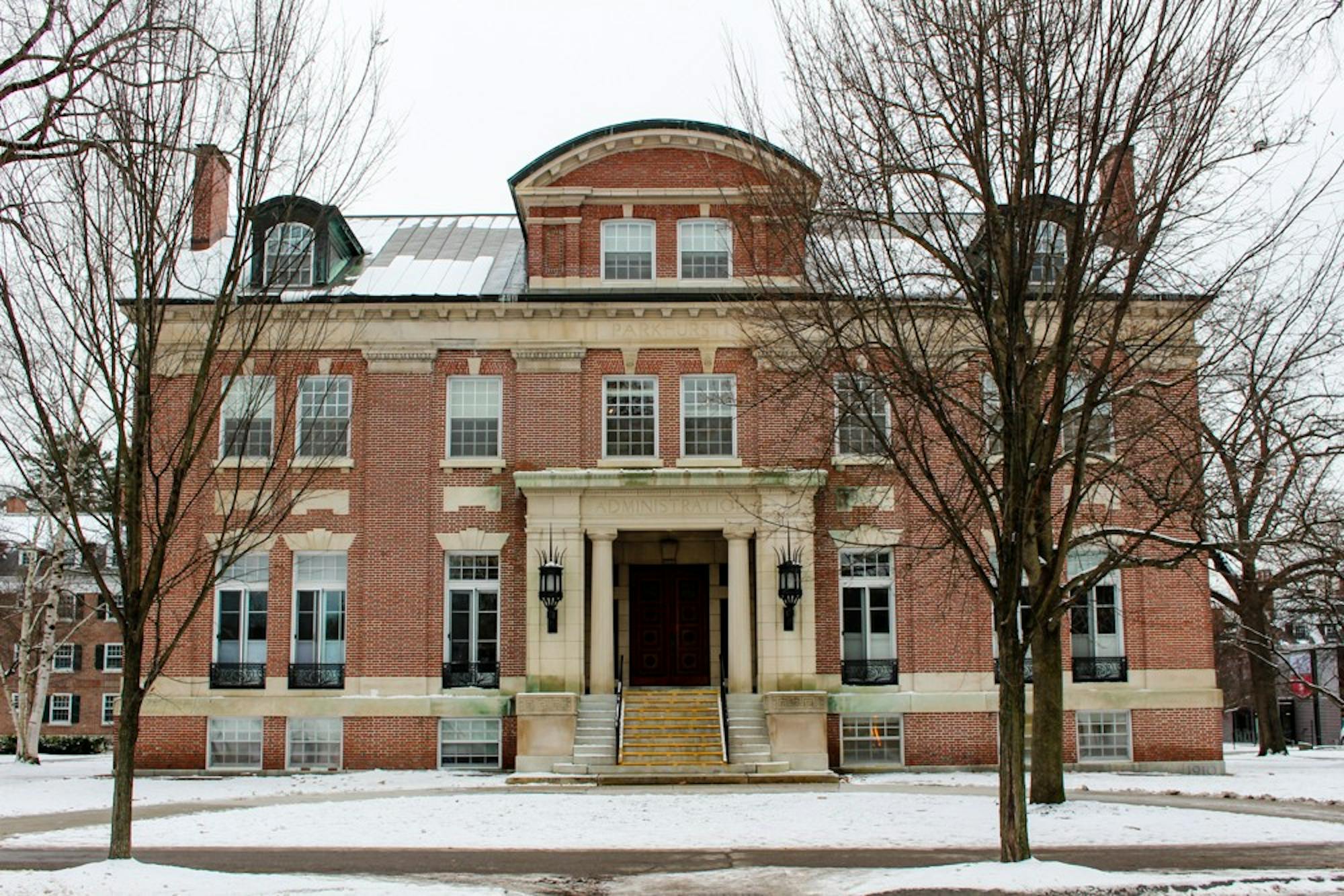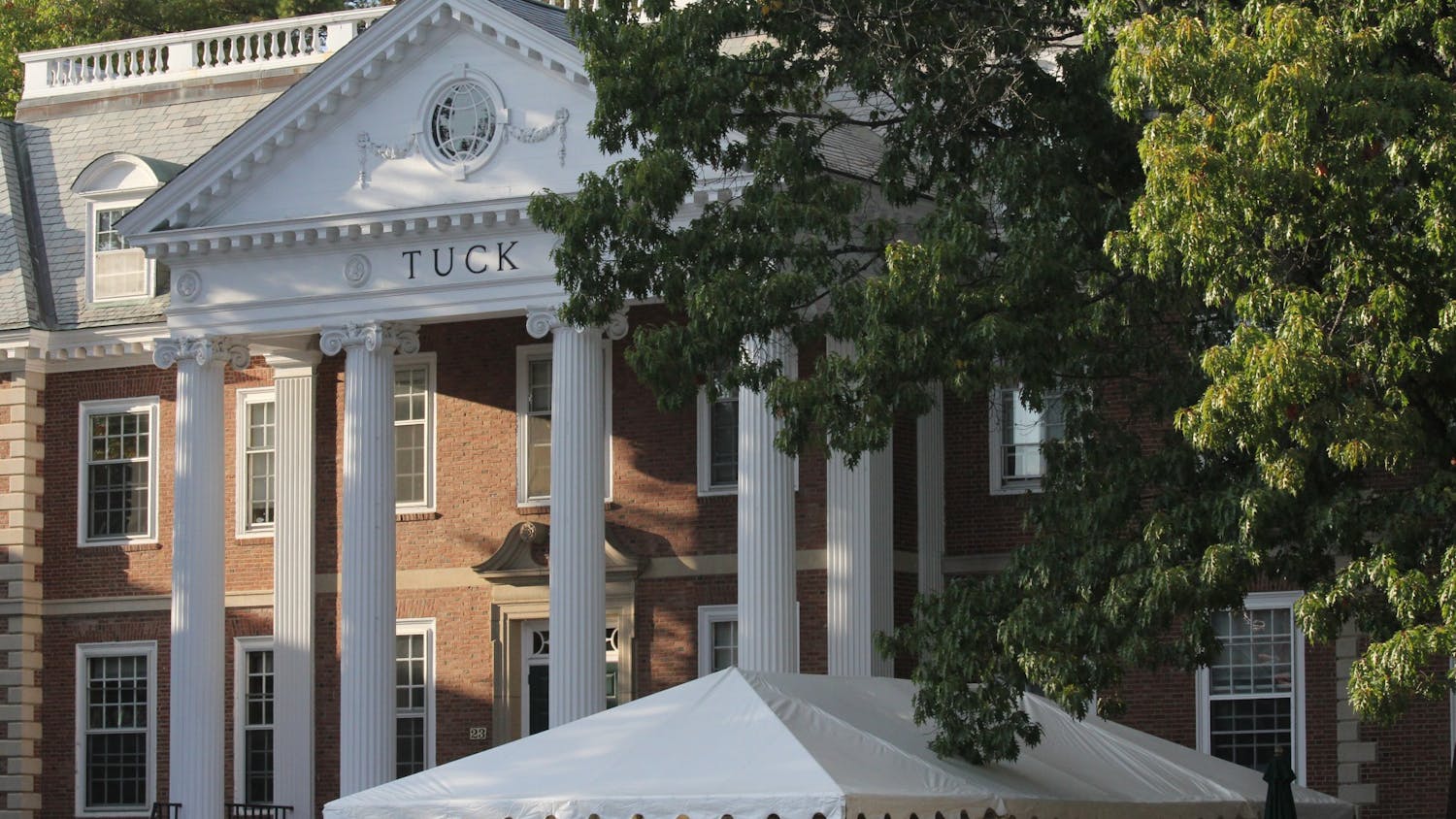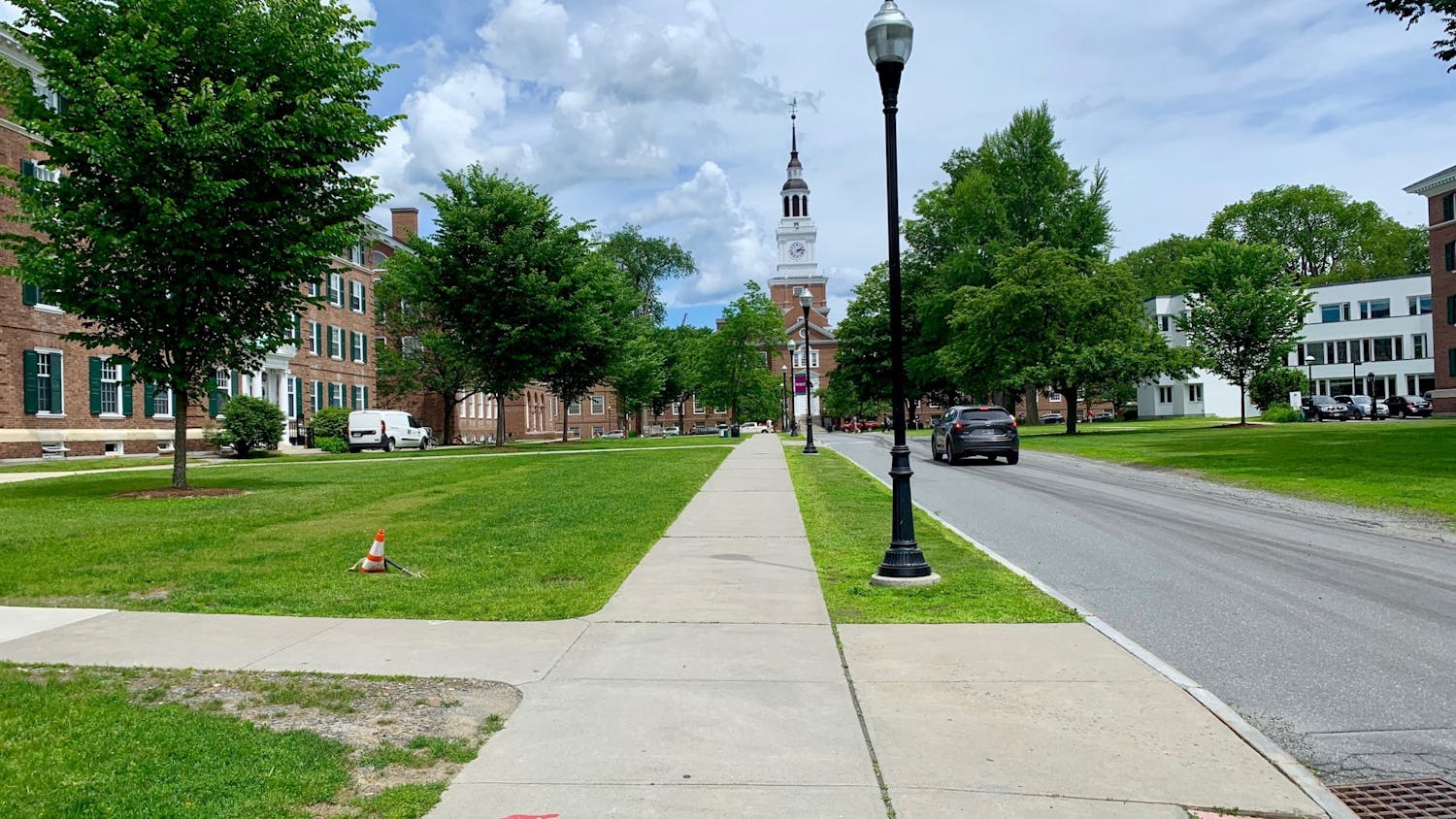Despite the partial return of students to campus, the recovery of the financial markets and the prospect of widespread vaccinations, the College is, financially speaking, not out of the snowy New Hampshire woods. Dartmouth will face an estimated $91 million operating loss for fiscal year 2021 as it works to return to normal operations and begins planning for the long-term budgetary impacts of COVID-19.
The College’s projected loss due to the pandemic currently consists of $19 million in additional expenses and $72 million in lost revenue, according to chief financial officer Mike Wagner. These projected losses are relative to the fiscal 2021 budgeted operating revenues — $1.1 billion — which were set at a Board of Trustees meeting in early March. This year’s additional expenses include COVID-19 testing and other pandemic-related measures, while the lower projected revenues largely stem from decreased numbers of students paying tuition and room and board, as well as lower projected donations to the Dartmouth College Fund.
Meanwhile, Provost Joseph Helble said that he and other administrators are already planning the fiscal year 2022 budget with the goal of returning to “normal operations” by the fall of 2021.
“By fall, it certainly seems reasonable, given current projections, that enough of the population will have been vaccinated — including staff, faculty and students — that fall can start to look like a normal fall,” Helble said, adding that he’s “optimistic” for a standard September on campus.
Helble also said that if vaccinations become available to college-aged students earlier than expected or the state of the pandemic dramatically improves, there is a chance that some aspects of pre-pandemic Dartmouth could return to campus even earlier.
Wagner noted that the final loss in June 2021 — when the current fiscal year ends — could be anywhere between $80 million and $120 million due to uncertainty over future economic conditions and progress in fighting the pandemic. He described the projected $91 million loss estimate as a gradually narrowing bell curve.
“As we get further into the fiscal year … we get closer and closer to thinking that the [$91 million] point estimate is going to be right,” Wagner said.
He explained that $12 million of the estimated $19 million of additional spending is categorized as “health management,” which includes COVID-19 testing, personal protective equipment and contact tracing. Wagner wrote in an email that the College budgeted an additional $2 million for the movement and storage of student belongings, $1 million for additional cleaning costs and $4 million for “other expenses and contingency.”
Helble noted that because the federal government is covering the cost of the vaccine, Dartmouth has not budgeted for vaccine distribution this year.
The largest pieces of the revenue shortfall are a drop in tuition and fees revenue by $21 million and a decline in room and board revenue of $35 million. Helble attributed the decline in tuition revenue, which occurred despite the College going ahead with its 3.9% planned tuition increase for the academic year, to a jump in students taking gap years. He noted that the full impact of a reduction in tuition revenue will not materialize immediately.
“What we don’t know is how many students … took a term or two terms or a year off, because so far, all we have that’s definitive is fall term data,” Helble said. “So we don’t know what adjustments people are making. That actually won’t become clear to us until probably some time this summer.”
He added that this makes it more difficult to plan for fiscal year 2022 and future years, as some students might be taking gap years that will not be “made up” until next year or even two or three years out, and the College has "no way of knowing” what students’ plans may be.
The drop in room and board revenue is partially offset by College savings on scholarships. Some students, Wagner said, saw a decrease in their financial aid because Dartmouth was no longer covering their living expenses on campus. $18 million is estimated to have been saved on this front, though the College has also budgeted for an additional $8 million in scholarships due to increased need.
The remainder of the revenue shortfall is divided between an estimated $8 million in professional school shortfalls — including, Wagner wrote, tuition, room and board, donations and research — $9 million less in donations to the Dartmouth College Fund and $9 million in “other revenues,” $5 million of which is represented by absent revenue at the Hanover Inn.
Combined, the $19 million in additional spending and the net $72 million in lost revenue make up the $91 million operating loss. However, Wagner cautioned, the College will not actually be $91 million in the red because of a number of countermeasures taken to ameliorate the losses.
Roughly $50 million will be covered by a “rebudgeting” in every school and division of the College. This includes the College’s hiring freeze, the cancelation of off-campus programs and the elimination of conference and travel expenses for professors and administrators.
Some divisions have rebudgeted by laying off staff or offering early retirement and not refilling the positions. As of mid-October, 15 campus services staff had been laid off, furloughed or had hours cut, and 26 had taken early retirement offers. The Tuck School of Business also laid off 18 employees as part of its rebudgeting, and 15 athletics employees saw their positions eliminated due to the July decision to cut five sports teams.
Mills said that there are no further “big planned layoffs,” but he noted that schools and divisions may continue to “rebalance” small numbers of staff depending on changes to academics or other programs: cutting a position here or there as needed, but without large-scale movement of staff.
The College will save another $13 million due to a salary freeze for faculty and staff. Additionally, $6 million will come from the Scholarship Bridge program, a new effort designed to “fundraise toward the increase in scholarship that [the College] anticipated as COVID was hitting,” Wagner wrote in an email. That money, he added, will cover most of the $8 million in scholarships allocated due to increased financial need.
The College will pull the remainder of the operating loss — roughly $22 million — from Dartmouth’s reserves. Dartmouth’s liquid operating reserves currently exceed $400 million, including the $50 million revenue stabilization reserve, and are separate from the College’s endowment, according to Wagner.
For fiscal year 2020, Dartmouth’s operating loss was $36 million, Wagner and Helble said in a September “Community Conversations” broadcast. Less than half of the $36 million ultimately had to be drawn from Dartmouth’s reserves, Wagner said at the time.
Wagner and Helble could not provide estimates for the endowment’s performance or the rate of new alumni donations thus far this fiscal year. However, Wagner said that due to federal economic stimulus efforts and the development of successful vaccines, the investment markets have so far overperformed. The endowment, for example, grew by a higher-than-expected 7.6% in fiscal year 2020.
Chief operating officer for advancement Ann Root Keith wrote in an email statement that total giving — which includes donations to the endowment, the Dartmouth College Fund and other gifts — is up 8% compared to this time last year. Donations to the endowment are up 72%, she wrote, due largely to a $15 million gift in support of the newly established Susan and James Wright Center for the Study of Computation and Just Communities, but Keith did not provide specific statistics for the DCF and other giving.





